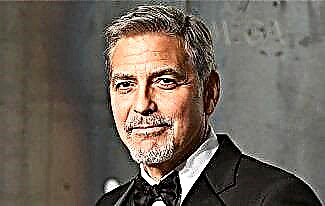At the end of the 19th and the beginning of the 20th centuries, the presentiment of changes on a worldwide scale was in the air. Outstanding technical inventions, scientific discoveries, cultural works seemed to say: the world must change. People of culture had the most subtle presentiment of changes. The most advanced of them tried to ride the wave that was just incipient. They created new directions and theories, developed innovative expressive forms and sought to make art mass. It seemed that just about, and humanity will ascend to the heights of prosperity, breaking free from the shackles of poverty and endless struggle for a piece of bread both at the level of an individual, and at the level of states and nations. It is unlikely that even the most cautious optimists could then have assumed that this surge of cultural energy would be crowned with the terrible meat grinder of the First World War.

In music, one of the world's innovators was the Russian composer Alexander Nikolaevich Scriabin (1872 - 1915). He not only made a great contribution to the improvement of musical expressive means and created a number of wonderful musical works. Scriabin was the first to think about the philosophy of music and about its interaction in other arts. In fact, it was Scriabin who should be considered the founder of the color accompaniment of musical works. Despite the minimal possibilities of such accompaniment contemporary to him, Scriabin confidently predicted the synergistic effect of the simultaneous influence of music and color. At modern concerts, lighting seems to be a natural thing, and 100 years ago it was believed that the role of light was to let the viewer see the musicians on stage.

The entire work of A. N. Skryabin is imbued with faith in the possibilities of Man, which the composer, like many then, considered limitless. These opportunities will someday lead the world to destruction, but this death will not be a tragic event, but a celebration, a triumph of the omnipotence of Man. This prospect does not seem particularly attractive, but we are not given to understand what the best minds of the early 20th century understood and felt.
1. Alexander Scriabin was born into a noble family. His father was a lawyer who joined the diplomatic service. Alexander's mother was a very talented pianist. Even 5 days before giving birth, she performed at a concert, after which her health deteriorated. The child was born healthy, but for Lyubov Petrovna, childbirth was a disaster. After them she lived another year. Continuous treatment did not help - Scriabin's mother died of consumption. The father of the newborn served abroad, so the boy is under the care of his aunt and grandmother.

2. Alexander's creativity manifested itself very early. From the age of 5, he composed melodies on the piano and staged his own plays in the children's theater donated to him. According to family tradition, the boy was sent to the Cadet Corps. There, having learned about the boy's abilities, they did not drive him into the general system, but, on the contrary, provided all the opportunities for development.
3. After the Corps, Scriabin immediately entered the Moscow Conservatory. In the course of his studies, he began to compose rather mature works. Teachers noted that, despite the clear influence of Chopin, Scriabin's melodies bore the traits of originality.

4. From his youth, Alexander suffered from a disease of his right hand - from musical exercises she often overworked, not allowing Scriabin to work. The ailment was, obviously, a consequence of the fact that, as a little boy, Alexander played a lot on the piano on his own, and not that he was overloaded with music. Nanny Alexandra recalled that when the movers, delivering a new piano, accidentally touched the ground with the leg of the instrument, Sasha burst into tears - he thought that the piano was in pain.
5. The famous book publisher and philanthropist Mitrofan Belyaev rendered great support to the young talent. He not only unconditionally published all the works of the composer, but also organized his first trip abroad. There, Alexander's compositions were received very favorably, which further emancipated his gift. As it often happened and happens in Russia, part of the musical community was critical of the rapid success - Scriabin was obviously out of the then musical mainstream, and the new and incomprehensible frightens many.
6. At the age of 26, A. Scriabin was appointed professor of the Moscow Conservatory. Many musicians and composers would consider such an appointment, they would consider such an appointment a blessing and would take the place as long as they had the strength. But to the young professor Scriabin, even in conditions of serious financial difficulties, the professorship seemed to be a place of confinement. Although, even as a professor, the composer managed to write two symphonies. As soon as Margarita Morozova, who encouraged people of art, offered Scriabin an annual pension, he immediately resigned from the conservatory, and in 1904 went abroad.

7. During a tour to the United States, during a break between concerts, Scriabin, in order to maintain his shape and at the same time not strain his sore arm, played an etude he had composed for one left hand. Seeing how amazed the hotel employees were, who did not see that the composer was playing with one hand, Scriabin decided to perform an etude at a concert. After finishing the study, applause and a single whistle rang out in the small hall. Alexander Nikolaevich was surprised - where did a person versed in music come from in the American outback. Whistling turned out to be an emigrant from Russia.

8. Scriabin's return to Russia was triumphant. The concert, which took place in February 1909, was received with a standing ovation. However, the very next year Alexander Nikolaevich wrote the Prometheus symphony, in which for the first time music interacts with light. The first performance of this symphony showed the audience's unwillingness to accept such innovations, and Scriabin was again criticized. And, nevertheless, the composer continued to follow the path, as he believed, to the Sun.

9. In 1914 A. Scriabin made a tour to England, which strengthened his international recognition.
10. In April 1915, Alexander Nikolayevich Scriabin died unexpectedly from purulent inflammation. On April 7, a furuncle on his lip opened, and a week later the great composer was gone. The funeral did not fall on Easter and turned into a nationwide procession along the road covered with flowers to the accompaniment of the singing of the thousandth choir of student youth and nuns. A. Scriabin was buried at the Novodevichy cemetery.
11. Alexander Scriabin wrote 7 symphonic works, 10 piano sonatas, 91 preludes, 16 etudes, 20 musical poems and dozens of smaller pieces.
12. Death stopped the composer's creation of Mysteries, a multi-faceted work in which music was complemented by light, color and dance. “Mystery” for Scriabin is the final process of the union of Spirit with Matter, which must end with the death of the old Universe and the beginning of the creation of a new one.
13. Scriabin was married twice. In his first marriage, 4 children were born, in the second - 3, only 5 girls and 2 boys. None of the children from their first marriage lived to be 8 years old. The son from his second marriage, Julian, died at the age of 11. Daughters from their second marriage, Ariadne and Marina, lived in France. Ariadne died in the ranks of the Resistance during the Second World War. Marina passed away in 1998.
14. In biographies, Scriabin's first marriage is often called unsuccessful. He was unfortunate, but, above all, for his wife Vera. The talented pianist left her career, gave birth to four children, took care of the house, and as a reward was left with children in her arms and without any means of subsistence. Alexander Nikolaevich, however, did not hide his relationship with his second wife (their marriage was never legalized) from the very beginning.

Second family
15. Critics argue that over 20 years of active creative activity, Alexander Scriabin independently made a revolution in his compositions - his mature works are completely different from youthful compositions. One gets the impression that they were created by completely different people.









